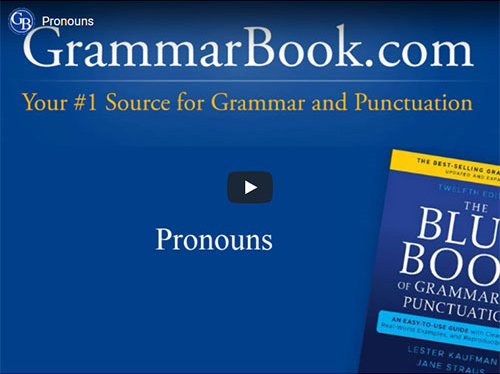|
If you grew up attending American schools, at some point you probably received the advice to "write in the active voice." Although English instructors tend to hold passive-voice statements in lesser esteem, many English speakers (including college graduates) still often use them. Some speakers also might apply the passive voice without being able to readily identify what it is.
So what exactly is the passive voice, and does it really weaken our writing? Let's explore those questions.
Active Voice
Active voice means the subject is performing the verb. In broad terms, using the active voice means you have a subject that is performing an action, as in this sentence:
The subject (the cat) is performing the action (chasing). It's simple and direct. Here is another example:
Again, we have a direct relationship between the subject and the verb. Jennifer is our subject and bakes is the action.
Passive Voice
Passive voice means the subject receives the action. In a passive-voice sentence, the relationship between the subject and the verb becomes less direct. The subject no longer performs the action, as in:
| The town was flooded by the hurricane. |
In this sentence our subject (the town) becomes flooded, but not by its own activity. The passive construction makes the object a subject and the subject an object.
Is It Wrong to Use Passive Voice in Writing?
In some cases, the passive voice may be favorable mainly from the viewpoint of desired emphasis. For example, in the sentence the award was given to Joseph, perhaps we want more focus on the award than on Joseph (compare with Joseph received the award).
In other cases, however, the passive voice might be applied to shift attention from where it belongs. For example, someone working in public relations for a village might write a sentence such as the unpopular edict was passed by the village to soften how one receives the more-identifying news that the village passed the unpopular edict.
Similarly, there may be contexts in which we use the passive voice because we do not know the actor behind the verb. For instance, in a sentence such as to the dismay of many, the debt was forgiven, the forgiver's identity may not yet be established.
As a matter of overall usage and style, passive-voice sentences generally make our expressions less resolute or even confusing. Using passive statements is acceptable and sometimes even necessary, but as a matter of intent, our writing should rely mainly on the active voice.
|
View and comment on this
article on our website.
|
|
|

|
Pop Quiz
Applying what you now understand, specify whether each following sentence is written in the active voice or the passive voice.
1. The thunder rattled the windows of my house.
2. My taxi driver was ticketed by a police officer.
3. Maria called the software company's helpline.
4. Advanced computers teach themselves algebra and languages.
5. Our plane was tossed around by the thunderstorm.
|
 |
The Blue Book of Grammar and Punctuation
by Lester Kaufman and Jane Straus |
The Authority on English Grammar! Twelfth Edition Now Available
An indispensable tool for busy professionals, teachers, students, homeschool families, editors, writers, and proofreaders.
Available in print AND as an e-Book! Over 2,000 copies are purchased every month!
To order the book, simply click the link to order the book from the GrammarBook.com website.
|
Free BONUS Quiz for You!
[[firstname]], because you are a subscriber to the newsletter, you get access to one of the Subscribers-Only Quizzes. Click here to take an Adjectives and Adverbs Quiz and get your scores and explanations instantly!
We will be adding many more quizzes this year to our already substantial list of them. If you have suggestions for topics we have not yet covered, please send us a message at help@grammarbook.com.
|
Hundreds of Additional Quizzes
at Your Fingertips
Subscribe now to receive hundreds of additional English usage quizzes not found anywhere else!
Teachers and Employers
Save hours of valuable time! You may assign quizzes to your students and employees and have their scores tallied, organized, and reported to you! Let GrammarBook.com take the hassle out of teaching English!
"Fun to test my skills."
"The explanations really help ... thanks!"
"I can select the quizzes to assign to my students, and then the results are reported to me automatically!"
If you think you have found an error in a quiz, please email us at help@grammarbook.com
|
Wordplay

Pop Quiz Answers
1. The thunder rattled the windows of my house. Active Voice
2. My taxi driver was ticketed by a police officer. Passive Voice
3. Maria called the software company's helpline. Active Voice
4. Advanced computers teach themselves algebra and languages. Active Voice
5. Our plane was tossed around by the thunderstorm. Passive Voice
|
 |
English in a Snap:
68 One-Minute English Usage Videos FREE |
Learn all about who and whom, affect and effect, subjects and verbs, adjectives and adverbs, commas, semicolons, quotation marks, and much more by just sitting back and enjoying these easy-to-follow lessons. Share them with your colleagues (and boss), children, teachers, and friends as well! Click here to watch.
|
|





